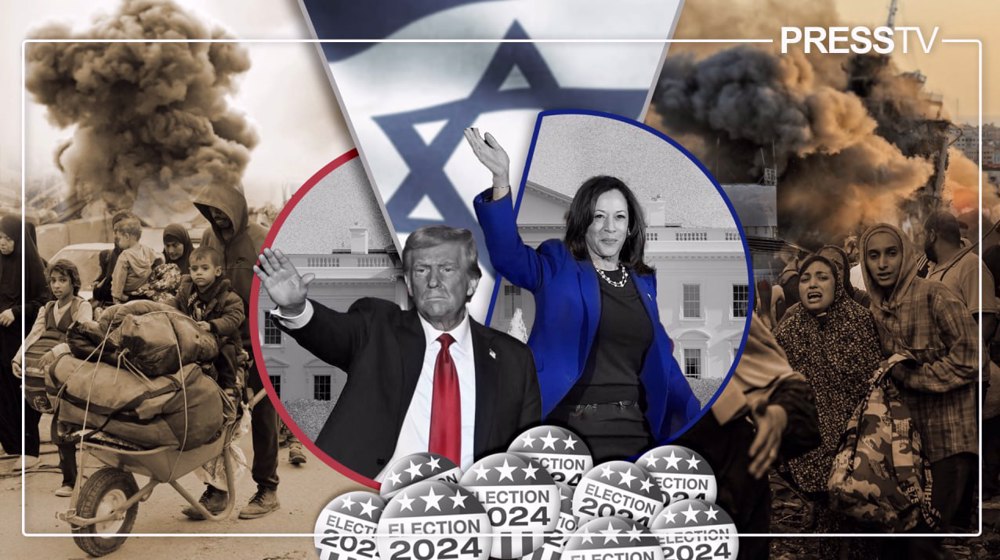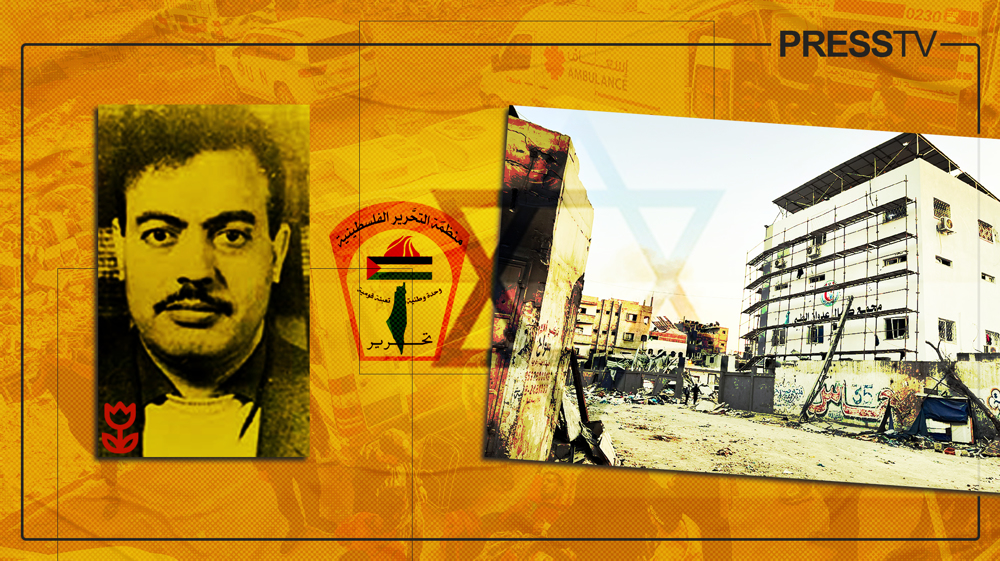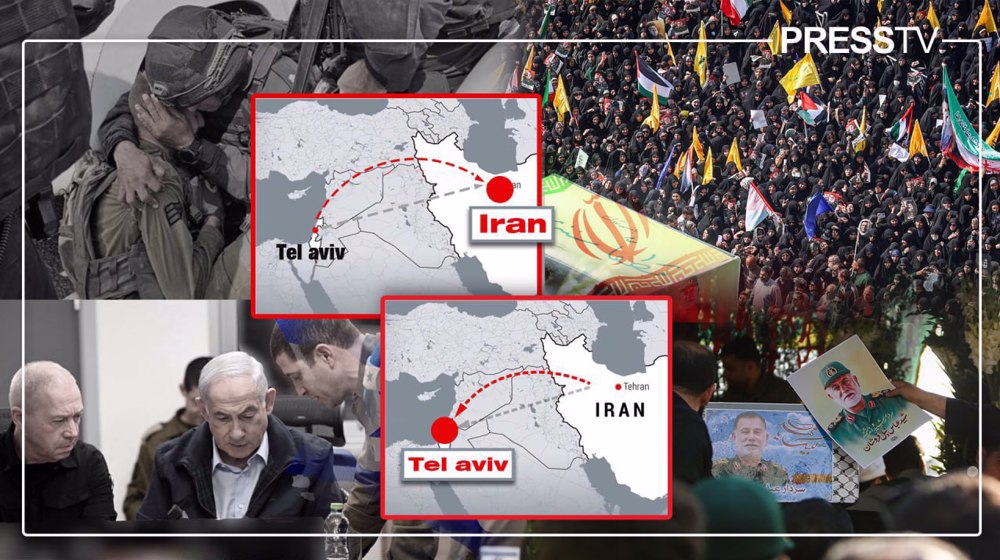US-Israel ‘deterrence’ doctrine causes more instability in Middle East
By Elijah J. Magnier
The Midrash Rabbah, the five books of the Torah written over 1,000 years ago, is claimed to have encouraged its followers to strike first: "He who rises to kill you, preempt and kill him." This dictum is based on biblical precedents running back 3,000 years. Since then, it has been picked up and adopted by both the US and Israel under their national security policy but with another title: "preemptive strikes," or "targeted killings." This theory was also revived and embraced by David Ben-Gurion as a strategic military doctrine under another name — deterrence. A biblical sentence and other definitions and doctrines lead to one outcome: unlawful acts to justify murder and international law violation.
The US and Israel's criminal performances have certainly been short-term tactical successes, extremely painful to the groups or countries subjected to these actions. However, they were strategically counter-productive to the perpetrators in a massive way. In the case of the Lebanese Hezbollah particularly, the outcome has been to Hezbollah's benefit much of the time. Overall, the practice of targeted killing has turned the Middle East into a battlefield and effectively created profound instability in the region.
Many academics justify the Israeli unlawful assassinations by claiming that it has a structural security disadvantage vis-à-vis its neighbors. This concept no longer fools the world; Israel actually enjoys unlimited support from the US and Europe and several Arab states, mainly Egypt, Jordan, Saudi Arabia, the Emirates, and Bahrain. The relationship between Israel and these states is coming to light recently but never actually ceased for decades. Moreover, Israel's "deterrence" policy has not been successful, especially against Hezbollah in Lebanon, as we have said.
In 1982, Israel invaded Lebanon and occupied territory. The occupation and the support of the young Islamic Republic of Iran gave birth to the "Islamic Resistance in Lebanon," later known as Hezbollah. Hezbollah was considered a severe threat to the US and Israel because it stood against the occupiers and fought to liberate Lebanese territory. In August of the same year, the 32nd US Marines Amphibious Unit, together with French and Italian military units, landed in Beirut. A few months later, the US Navy bombed many locations in the country signaling the direct participation of the US in killing Lebanese civilians and in the then-ongoing civil war. In 1983, the US and French military barracks were blown up by suicide attacks. There is little doubt that the act was in response to the US involvement on Israel's side in the war in Lebanon. According to Chapter VII of the United Nations, individuals or collectives have the right to defend themselves (in self-defense) against occupiers, and obtain their territory's liberation. This is what the World did in WWII against the German occupation. However, the US blamed Imad Mughniyeh, a young man who joined the resistance and years later was integrated within Hezbollah.
In 1992, Israeli helicopters assassinated Secretary General of Hezbollah Sayyed Abbas Musawi with his wife and son while they were in a car in southern Lebanon. Israel wrongly believed that Hezbollah is a vertically-led organization and that the unlawful act would cripple Hezbollah. On the contrary, a more charismatic leader took over, Sayyed Hassan Nasrallah, who took Hezbollah to a broader regional level and turned Hezbollah into a regional power in Gaza, Lebanon, Syria, Iraq, and Yemen.
On February 12, 2008, Imad Mughniyeh was assassinated in Syria, and the CIA claimed credit for his unlawful murder. Hezbollah lost one of its main pillars and military leaders who carefully planned to stand against Israel and prevented the Zionist military forces from occupying Lebanon again after its withdrawal in 2000. However, following this targeted killing, Hezbollah, which was fighting over the whole surface of Lebanon (10,400 square kilometers) moved to Syria and Iraq and managed to stop the US-Arab plan to create a failed state in the Levant and give the upper hand to al-Qaeda and Daesh Takfiri terrorist groups. Hezbollah covered hundreds of thousands of square kilometers in Syria and Iraq, fought alongside a classic army (Syria) and a superpower force (Russia) and learned the art of urban warfare, desert combat, and coordinated combat with Air Force and armored divisions.
This shows that targeted assassinations increase the determination of populations to hold their ground and defend their country. This is also validated by the US unlawful killing of the Iranian Lieutenant General Qassem Soleimani, head of IRGC Quds Force, who was called for a meeting with the Iraqi Prime Minister Adel Abdul Mahdi. The US forces set up an ambush for the Iranian officer and violated international law and the rules governing their presence in Iraq. The cost is high, but the consequences are even higher for the stability of the Middle East. Haj Qassem's friends are counted in tens of thousands, and these shall not rest until they see the last US soldier leaving West Asia.
The US assassination of an official envoy, an Iranian general, and an unlawful act on foreign soil left behind a salutary lesson for the rest of the World: the US can't be trusted and is ready to backstab even an ambassador like Haj Qassem cowardly. What is even worse is that the killing made public the immoral side of US leadership. Abdul Mahdi said that US former president Donald Trump called him on the 31st of December asking to mediate with Iran. Abdul Mahdi accepted and contacted General Soleimani asking him to come to Baghdad. The Iraqi prime minister did not know that Trump was complicit in the setup and was deviously setting a trap. What leader around the World trusts the US today or would accept to keep US forces in his country unless these forces are the protectors of his own regime and his own people who did not elect him?
The US targeted killing of Soleimani did not change the course of the resistance against the occupation forces. Targeted killing or assassination or murder are all definitions demonstrating one outcome: a clear violation of international law. However, Hezbollah has managed to impose its deterrence on Israel, whose forces have disappeared from the borders for several months for fear of being shot at and killed. Iran bombed the most extensive US base in Iraq, Ain al-Assad, in retaliation for the Iranian general's assassination. This should make Israel and the US think very carefully before committing further crimes.
The objective to dislodge the US forces will be achieved without a specific duration. However, this objective will undoubtedly lead to further instability in the Middle East because the US will resist and won't be happy to lose a foothold in a most important part of the world: the Levant and Mesopotamia.
(The views expressed in this article do not necessarily reflect those of Press TV.)
Israeli strike on Lebanon kills at least 15 people
Israeli forces kill 7 more Palestinians in West Bank
VIDEO | US presidential election
Netanyahu fires military affairs minister Gallant
Hezbollah attacks turn Israel’s Haifa into a ghost town
Iran’s FM meets Pakistani PM, discusses bilateral ties, Israeli atrocities
Iran ramps up gasoline output amid rising demand
UK foreign secretary under pressure over denial of genocide in Gaza











 This makes it easy to access the Press TV website
This makes it easy to access the Press TV website